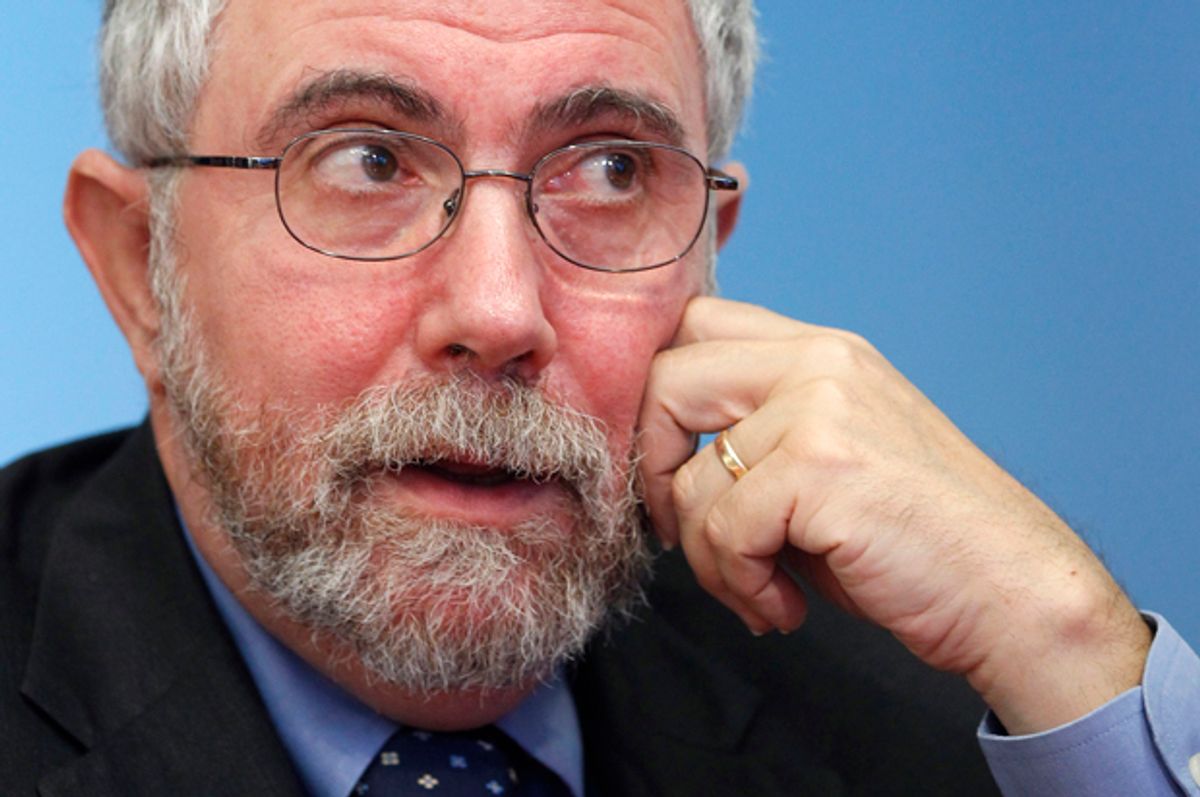Most presidents have a broad team of advisers whose job it is to carefully weigh domestic and foreign policy decisions. Our current commander in chief prefers watching hours of Fox News and firing off a few missiles in Syria when his favorite anchors report plunging approval ratings. It is, as Paul Krugman writes in Monday's column, governing by publicity stunt — cheap ploys for attention and approval, with no overarching strategy.
The first stunt of the administration came before before Trump was even inaugurated. It seems like a decade in Trump administration years, but it was only a few months ago that he, and worse, the mainstream media, was crowing about how he prevented a Carrier air-conditioning plant from moving 1,100 jobs overseas. In fact, it was more like 700 jobs. But does that really matter when, as Krugman reminds us, "Around 75,000 U.S. workers are laid off or fired every working day, so a few hundred here or there hardly matter for the overall picture. Whatever Mr. Trump did or didn’t achieve with Carrier, the real question was whether he would take steps to make a lasting difference."
The answer is a resounding no. Even corporations and investors, "have decided that the Carrier deal was all show, no substance, that for all his protectionist rhetoric Mr. Trump is a paper tiger in practice." Jobs are still moving to Mexico, the Mexican peso having recovered any post-election losses.
Why confront reality when smoke and mirrors seems to bring better media coverage? This brings us to the Syrian missile strikes, about which Krugman does not hold back: "Showy actions that win a news cycle or two are no substitute for actual, coherent policies. Indeed, their main lasting effect can be to squander a government’s credibility . . . The attack instantly transformed news coverage of the Trump administration. Suddenly stories about infighting and dysfunction were replaced with screaming headlines about the president’s toughness and footage of Tomahawk launches."
The worst part is that the U.S. missiles did nothing to weaken the regime Trump blasted in a press conference for using chemical weapons against its own people (never mind that the week before he seemed disinterested in taking any kind of action). In fact, Krugman writes, "A few hours after the attack, Syrian warplanes were taking off from the same airfield, and airstrikes resumed on the town where use of poison gas provoked Mr. Trump into action. No doubt the Assad forces took some real losses, but there’s no reason to believe that a one-time action will have any effect on the course of Syria’s civil war."
But one-time actions are Trump's specialty, and the pundits are rewarding him for it. He "becomes president" for simply reading a speech off a teleprompter. He's praised yet again for the missiles, as if a few strikes could compare. This, Krugman admonishes the rest of the media, is a dangerous path: "Aside from everything else, think about the incentives this creates. The Trump administration now knows that it can always crowd out reporting about its scandals and failures by bombing someone."
At the beginning of another week in our new reality, Krugman leaves us with this: "Real leadership means devising and carrying out sustained policies that make the world a better place. Publicity stunts may generate a few days of favorable media coverage, but they end up making America weaker, not stronger, because they show the world that we have a government that can’t follow through."
If only anyone in charge were listening.
Read the full column.




Shares